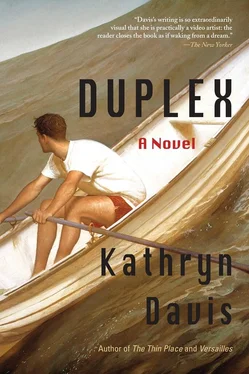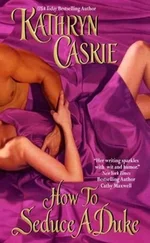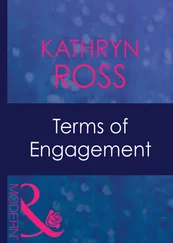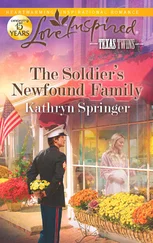“I’ve heard the band is supposed to be out of this world,” Miss Vicks was saying, ashing her barely smoked cigarette in the remains of her dinner.
Mary slid across her seat to the side of the booth nearest the wall, and the sorcerer slid with her.
“What’s wrong?” Eddie asked.
“Nothing,” Mary said. Her upper lip was moist with perspiration. “Let’s ask for the check, shall we?”
“The band, Vicky?” the sorcerer was saying. “Good luck getting me on the dance floor.”
Later at the prom Mary rested her head on Eddie’s shoulder. This was what the girlfriend was supposed to do. She tried to hear his heartbeat through the fabric of his tuxedo jacket, and the fact that she wasn’t sure whether she could hear it made her think about how hard it was for any girl to ever know whether her love was being returned. The gymnasium had been transformed, showers of tiny colored lights completely masking the dark wood walls and the scuffed hardwood floor and the narrow balcony that circled the upper level where Eddie and his fellow athletes ran laps in inclement weather and where the chaperones were now passing around a bottle of vodka.
The theme was the Rain of Beads, which some teachers had objected to as inappropriate, but their objections had been overridden by the prom committee. If it wasn’t possible to reinvent the past in such a way as to make it conform to the present’s cheerful view of the way things ought to have been, why bother living? Red lights for blood and yellow for plasma and blue for tears — human beings needed to be proud they were made of such things!
Couples twirled snowflake-like past Mary and Eddie, who were barely moving. No one’s gown was as perfect as hers, not even the prom queen’s. A photographer snapped several shots for the local newspaper, capturing the pair from behind, a few of Mary’s moist brown locks escaping the upsweep of her do, the fingers of Eddie’s one hand tight around her waist and the other outspread across her shoulder blades. Everyone had seen Eddie fly sideways above center field with that same hand outspread, the ball nesting in his glove like an egg. He had been scouted by the major leagues — unlike most of his classmates, Eddie had a future.
The king and queen of the prom presided over the affair from their separate thrones, holding hands. These were Roy Duffy and Cindy XA — the vote hadn’t even been close. Who handsomer than Roy in his beaded tux, who prettier than Cindy in her matching gown? Would the king and queen have sex following the dance like most of the other couples? They’d been seen kissing in the field parking lot after baseball practice. Roy’s knuckleball was all but unhittable; Cindy could assume positions the other cheer leaders only dreamed of.
The irony was not lost on any of us that despite the theme there was a robot on the throne.
THE STORY OF THE RAIN OF BEADS GOES BACK FAR enough to seem like it never really happened. The girl I first heard it from was always telling stories — she was one of the older girls and all the little girls were in awe of her. We were sitting on the porch stoop one night in late summer, trading cards. This was what you did if you were a girl — it was your calling. The cards were separated into packs according to category: still lives, famous paintings, horses, dogs. Most of the trading cards had been bought in a store and had an unpleasant texture that made them less desirable than the jokers stolen from the decks of cards everyone’s parents used for bridge or poker. These playing cards were larger and smoother to the touch and often came in pairs. The girl wanted a black horse to complete the pair with her white horse. Her name was Janice.
Generally speaking the adults on the block considered her a liar. She said her mother beat her with a willow branch and she had stripes on her back to prove it. She said humans had been right when they said the world was flat and round like a coin and you could fall off the edge. Many things everyone had been told weren’t real turned out to be real. The world had edges but you couldn’t see them going, only when you were trying to come back. Janice also said she had a brother who died of leukemia and that, amazingly enough, turned out to be true. Like everyone else, she could push buttons on a console and find out whatever she wanted to know about anybody or anything. For this reason she kept everything exceptional about herself hidden.
Janice’s parents were at work all day long. She was their only living child and they loved her dearly, though the older she got the harder it was for them to show it. Her mother worked in a lab at the university; her father sold the other fathers clothing. The newlyweds in the house that was the other half of theirs were paid to keep an eye on her when she got home from school, but the whole street knew they spent every waking hour in bed. If she got lonely she had the family pet for company. She taught the dog to balance a cracker on his nose until she said OK, and then he’d dip his head and let the cracker drop to the floor and then he’d eat it.
The afternoons had a way of stretching endlessly in all directions as if time were taffy, something a person could get caught in. Janice said time was different now. It used to be sadder. The couple next door fought to get themselves in the mood. They would scream at one another and then Janice could hear the bedsprings creaking through the wall behind her parents’ headboard.
Once there was a girl, Janice said. Like most girls, she was a sap. By now everyone was listening, even the girls who were pretending not to.
In the beginning the fair tree of the Void abounded with flowers, Janice said, acts of compassion of many kinds. The fair tree of the Void also lacked compassion. The two trees sprang from one seed — think of it like code, she suggested — and for that reason there was but one fruit. The girl in the story spent a lot of time, like most girls, wishing for love. If she could have been cut open the boy she had a crush on would have been able to see her inner markings, even though they were practically invisible, like the black dots inside a banana. As it was he never had a chance.
He was a nice person but for some reason he thought it would be funny to pass the girl a note asking her to meet him at the Woodard mansion after school. He lived one block over, Janice said, above the movie theater; he probably got the idea to send the note from some friend. The theater was a family business and that’s why to this day they never showed funny movies.
After she returned home the girl washed the breakfast dishes. She stood there with her head bowed, crying into the sink, leaving the nape of her neck exposed all the way through the many different layers of her house and the debris floating in the upper atmosphere to the X-ray vision of the operational apparatus of the scow hovering in the air above.
Think of them like gods, Janice said, because that’s what they are. The nape of a human neck is especially easy to see through — that’s why they love it when we bow our heads. It doesn’t have anything to do with praying. Prayers bore them.
Unlike the boy she had a crush on the apparatus could see through the girl perfectly; it knew it wasn’t meant for her but that didn’t stop it. It was her fate, which had nothing to do with love. It had nothing to do with the boy and the note, either. Things just worked out this way sometimes.
Janice leaned in close; her attention to personal hygiene left a lot to be desired, and her breath was often stale. Everyone knew she’d stolen the fair tree of the Void somewhere, since her vocabulary wasn’t normally that impressive.
Do you know why the girl was crying? Janice asked. She was crying because she felt sorry for the world and everyone in it. The world was sadder then, too, and she wanted everyone to be happy like she was, meeting the boy. If she hadn’t wanted that, things would be different now, though not the way she hoped. After she dried the dishes the girl put on her jacket and got on her bike and started out, even though she’d promised her mother and father she wouldn’t go anywhere before they arrived home from work. The bike was a red Schwinn with a bell and a basket over the handlebars, sort of like the bike Mary used to have before she married the sorcerer and moved to town.
Читать дальше












